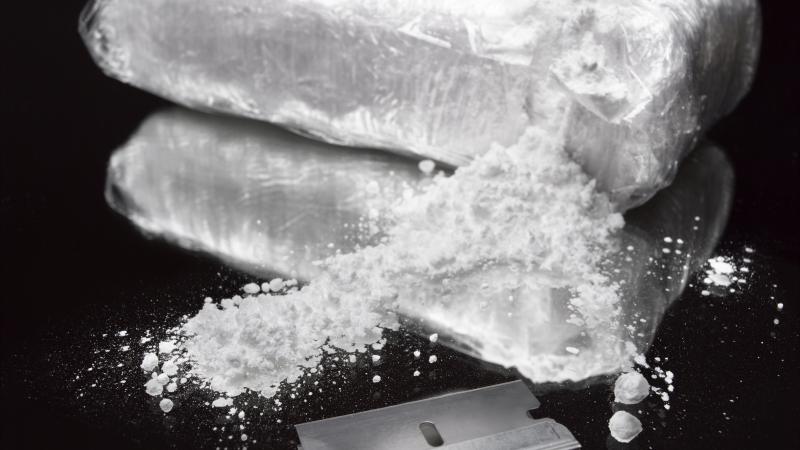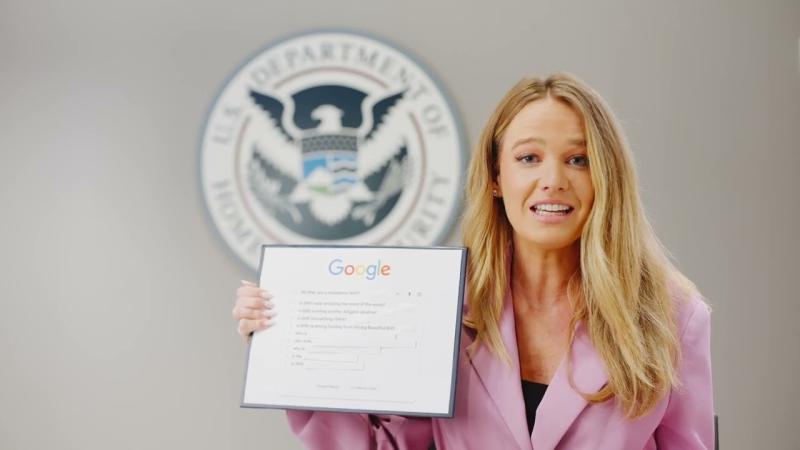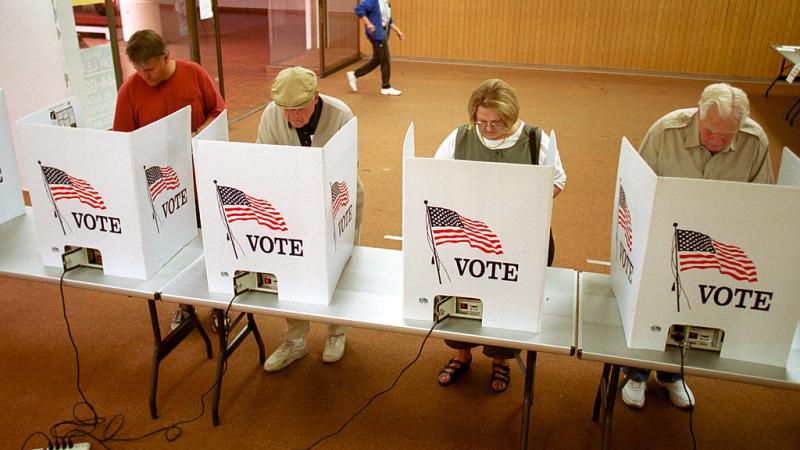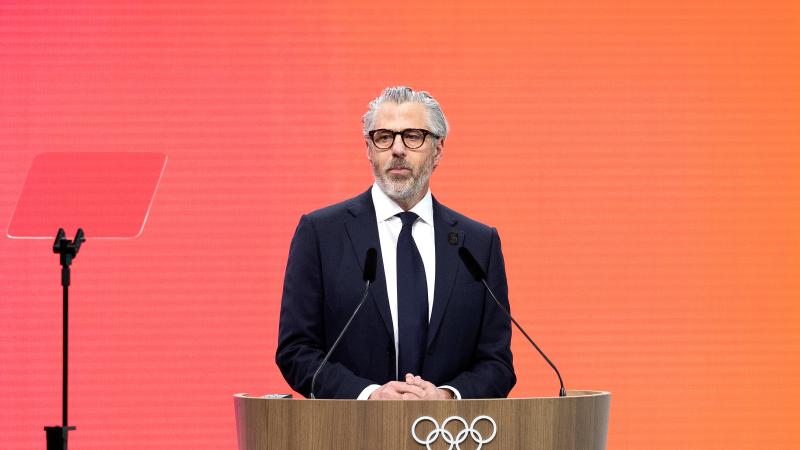‘Shut it down’: Bombshell FBI timeline exposes political interference in Clinton corruption probe
Kid gloves vs. brass knuckles: Newly-declassified timeline shows how the investigation of the Clinton Foundation was hamstrung by FBI and DOJ while baseless Russia collusion marched foward in both agencies against Donald Trump.
FBI Director Kash Patel has uncovered a bombshell memo written in 2017 chronicling the extensive political obstruction that career agents in three cities faced from their own bosses and the Obama Justice Department during the 2016 election as they probed whether Hillary Clinton engaged in a pay-to-play corruption scheme involving her family foundation.
"Shut it down!" then-Deputy Attorney General Sally Yates is quoted as demanding in the detailed timeline of political impediments that agents in New York City, Little Rock, Ark., and Washington D.C. reported.
The agents tried to get the help of federal prosecutors to determine whether or what crimes occurred while Hillary Clinton served as Secretary of State, most notably, because at that time, her family foundation solicited hundreds of millions of dollars from foreign and U.S. interests with business before her department.
The timeline — written by a DOJ lawyer assigned to the FBI under former bureau Director James Comey — was recently secured by top aides to Patel along with several corroborating internal emails and was obtained by Just the News. Together, they make clear that both the DOJ and former Deputy FBI Director Andrew McCabe placed significant impediments in front of agents who believed they had evidence to justify a public integrity criminal case.
The declassified timeline revealed that as early as February 2016, the Justice Department “indicated they would not be supportive of an FBI investigation.” The timeline also shows that, in mid-February 2016, McCabe ordered that “no overt investigative steps” were allowed to be taken in the Clinton Foundation investigation “without his approval” — a command he allegedly repeated numerous times over the coming months.
You can read the timeline here:
Declassified Timeline on Clinton Foundation Investigation
The roadblocks just kept coming, the timeline shows, to the great frustration of the agents and the U.S. attorney's office in Little Rock, which had moved to a fully predicated criminal investigation.
Patel's discovery of the memo and related emails comes at a sensitive time as Attorney General Pam Bondi has approved the use of a strike force and a grand jury to investigate whether law enforcement and intelligence abuses over the last decade amounted to a criminal conspiracy to protect Democrats like Clinton and Joe Biden while inflicting harm on Trump and his followers.
Officials told Just the News that DOJ also has secure potential cooperation from current and former prosecutors and agents who were willing to assist any investigation in possible obstruction of the Clinton probes.
"Shut it down!" No explanation given
The timeline detailed how Yates ordered one of the federal prosecutors to “shut it down” likely in the March 2016 timeframe. Federal prosecutors in the Southern District of New York (SDNY) and Eastern District of New York (EDNY) purportedly said in August 2016 that they “would not support the investigation” into the Clinton Foundation, according to the timeline, and that “no explanation was given.”
Once the investigation had essentially been delayed for a year and dragged past the November 2016 election, the timeline shows that DOJ officials under Trump then began to raise their “concerns regarding the statute of limitations” around the investigation, with one still unnamed official saying that they “wanted to close this chapter and move forward.”
Yates did not immediately respond to a request sent to her via her law firm email, and McCabe did not immediately respond to a request for comment sent to him through George Mason University. The Clinton Foundation did not immediately respond to a request for comment sent through its website.
McCabe was the Assistant Director in Charge of the FBI’s Washington Field Office, but he soon ascended to Deputy Director of the FBI under Comey, where the Justice Department inspector general said he “had an active role in the supervision of the Midyear [Clinton emails] investigation, and oversight of the Clinton Foundation investigation, until he recused himself from these investigations on November 1, 2016” — just days before the election. By that time, most political fallout against Hillary Clinton from the FBI's probes had been neutralized.
Inspector General Horowitz noted that his investigation “found that McCabe did not fully comply with this recusal in a few instances related to the Clinton Foundation investigation.”
No matter where agents turned to get support to investigate Clinton's alleged corruption, they were thwarted, the memo located by Patel reveals.
The timeline stated that, in July or August 2015, an FBI supervisory special agent at the Washington Field Office “had a brief discussion” with a member of the U.S. Attorney’s Office for the District of Columbia “regarding the Clinton Foundation allegations” which had been focused on by the book Clinton Cash by Peter Schweizer. At the time, an investigator whose name remains redacted “was in the process of attempting to predicate an investigation based on the allegations.”
An unnamed investigator “may have had one or two brief discussions” in the fall of 2015 with an assistant U.S. attorney in the nation’s capital and with a member of DOJ’s Public Integrity Section, according to the timeline, where the Clinton Foundation was “likely ancillary” and “with the intention of informing” the redacted DOJ officials that an investigator “was continuing to study the matter to possibly predicate an investigation.”
The preliminary investigation begins
A meeting between multiple FBI agents and DOJ officials whose names are redacted, including staff from the Criminal Investigative Division and the Office of General Counsel, was held “to discuss the opening of the Clinton Foundation investigation.” An unnamed official whose identity was redacted “authorized all three field offices to open investigations but to not take any investigative steps until the matter was discussed with DOJ.” The FBI’s Criminal Investigative Division “advised the search/access parameters for their investigation were limited in scope” and that the Criminal Investigative Division “would not be able to share” certain redacted information “with the CF investigative team.”
The timeline stated that the FBI’s New York field office “initiated a Preliminary Investigation” on January 22, the Little Rock field office “initiated a Full Field Investigation” on January 27, and the Washington field office “initiated a Preliminary Investigation" on January 29, 2016.
The Durham report previously said the FBI’s Little Rock investigation was launched in part due to an intelligence product and corroborating financial reporting that a particular commercial "industry likely engaged a federal public official in a flow of benefits scheme, namely, large monetary contributions were made to a non-profit, under both direct and indirect control of the federal public official, in exchange for favorable government action and/or influence."
The special counsel said the FBI investigation in the nation’s capital was opened “as a preliminary investigation, because the Case Agent wanted to determine if he could develop additional information to corroborate the allegations in a recently-published book, Clinton Cash by Peter Schweizer, before seeking to convert the matter to a full investigation.”
Offers of contributions to Clinton Foundation for preferential treatment
Durham also said the FBI’s Little Rock and New York investigations “included predication based on source reporting that identified foreign governments that had made, or offered to make, contributions to the Foundation in exchange for favorable or preferential treatment from Clinton.”
Despite that evidence, the FBI timeline stated that DOJ “indicated they would not be supportive of an FBI investigation” on February 1, 2016.
The timeline said that personnel from the FBI’s Little Rock office raised concerns that a redacted official “may not want to be a party to the briefing because of conflicts of interest” during an early February 2016 meeting. A redacted Little Rock official “expressed these concerns due to the possibility that” another redacted official “was believed to be a supporter of the Democratic Party and possibly the Clintons.”
There was a meeting between officials from the New York and Washington field offices, and possibly the Little Rock field office, on February 17, 2016 according to the timeline. McCabe “led the meeting” and “was advised” by the New York field office about a confidential human source (CHS) “who possibly had information on the matter.” During this meeting, McCabe “directed that no overt investigative steps were to be taken on the CF investigation without his approval.”
McCabe demands pre-approval of any investigation into Clintons
The timeline stated that the FBI’s Criminal Investigative Division reiterated that “all overt investigative steps related to the CF investigation” would “require” McCabe’s approval, “with the exception of speaking to open CHSs” during a February 22, 2016 meeting. The inquiry was further hobbled during the meeting when the FBI offices were “directed not to open or recruit any new CHSs, and no additional overt investigative steps were authorized.”
The Durham report previously said that, in late February 2016, a “meeting was convened at FBI Headquarters to discuss the Foundation investigations” — and McCabe initially ordered the closure of all the investigations before backtracking slightly to hamper the investigations by requiring his personal approval for any significant investigative actions.
The Durham report said “McCabe initially directed the field offices to close their cases, but following objections, agreed to reconsider the final disposition of the cases.”
Paul Abbate, then the assistant director in charge of the Washington Field Office, described McCabe as "negative," "annoyed," and "angry" about the Clinton Foundation cases, with McCabe saying that "they [the DOJ] say there's nothing here" and with McCabe asking "why are we even doing this?"
Durham said that, at the end of the meeting, Services Branch Executive Assistant Director Randall Coleman “directed that for any overt investigative steps to be taken, the Deputy Director's [McCabe’s] approval would be required.”
The declassified timeline showed that the FBI’s Little Rock office “sent an email” to the Criminal Investigative Division “requesting concurrence” to “obtain supporting documents” for the investigation on March 1, 2016, but the Little Rock investigators “never received permission to seek the documents.” The timeline also said that, possibly in March 2016, the U.S. Attorney’s Office for the Eastern District of Arkansas informed the FBI’s Little Rock investigators that Yates “ordered” the federal prosecutors to “shut it down.”
Lynch and Comey looked for ways to end the Clinton emails investigation
Obama Attorney General Loretta Lynch met with former President Bill Clinton on Lynch’s plane on the tarmac of a Phoenix airport on June 27, 2016. Lynch and Bill Clinton both claimed to the DOJ watchdog that they did not discuss the Midyear Exam investigation or any other DOJ investigations during their lengthy and private conversation.
Lynch later admitted to the DOJ inspector general that the meeting “went on and on” and “that it was just too long a conversation to have had.” After the meeting, the DOJ’s ethics office concluded that Lynch did not have to recuse herself and Lynch decided not to voluntarily recuse herself either. Lynch claimed to Horowitz that stepping aside would have created a “misimpression” that she and Bill Clinton “had discussed inappropriate topics, or that her role in the Midyear investigation somehow was greater than it was.”
The Obama attorney general told a reporter at the start of July 2016 that she ”fully expect[ed]” to accept the recommendation of the career FBI agents and DOJ prosecutors who conducted the Clinton emails investigation, and said that “I’ll be briefed on [the findings] and I will be accepting their recommendations.”
Comey clears Hillary, sets sights on Trump
Comey cleared Hillary Clinton of criminal wrongdoing for transmitting classified information on an insecure and private email server in a speech on July 5, 2016 — just weeks before greenlighting the Crossfire Hurricane investigation in late July 2016. Comey claimed of the Clinton case at the time that Clinton’s email practices were “extremely careless” and that “although there is evidence of potential violations of the statutes regarding the handling of classified information, our judgment is that no reasonable prosecutor would bring such a case.”
Comey listed Clinton’s numerous missteps, including the fact that 110 emails in 52 email chains contained classified information at the time they were sent or received by Clinton, but he recommended against charging her with any crimes.
Disgraced fired FBI special agent Peter Strzok later testified to Congress in 2018 that the FBI "did not have access" to Clinton Foundation emails that were on Clinton's private server because of a consent agreement "negotiated between the Department of Justice attorneys and counsel for Clinton."
Horowitz’s 2018 report concluded Comey’s actions seemingly exonerating Clinton were “extraordinary and insubordinate” when he announced Clinton wouldn’t be charged. “We concluded that Comey’s unilateral announcement was inconsistent with Department policy and violated long-standing Department practice and protocol by, among other things, criticizing Clinton’s uncharged conduct,” the DOJ inspector general concluded. "We also found that Comey usurped the authority of the Attorney General, and inadequately and incompletely described the legal position of Department prosecutors.”
The timeline said the FBI field offices in Little Rock and the nation’s capital were “directed to close their investigations” while the New York office “was advised no overt investigative action was to take place” unless McCabe authorized it.
Strzok had exchanged a host of anti-Trump texts in 2016 with now-former FBI lawyer Lisa Page, with whom he was having an affair. Horowitz wrote, “We did not have confidence that Strzok’s decision to prioritize the Russia investigation over following up on the Midyear-related investigative lead discovered on the Weiner laptop was free from bias.”
Strzok wrote in his 2020 book "Compromised" that “of course” he prioritized the Trump-Russia investigation over the Clinton emails investigation because “there was simply no equivalence between Midyear and Crossfire.”
Horowitz’s report in 2018 detailed multiple instances in which McCabe “lacked candor” with Comey, FBI investigators, and inspector general investigators, including while under oath, about his authorization to then leak sensitive information to The Wall Street Journal in late October 2016 that revealed the existence of the FBI investigation into the Clinton Foundation (while not revealing how McCabe had put the inquiry in leg-irons for nearly a year).
The Horowitz report concluded “the evidence is substantial” that McCabe misled investigators “knowingly and intentionally” about leaking to the media. Comey said he did not permit McCabe to tell the media, and Horowitz wrote that McCabe’s actions were “designed to advance his personal interests at the expense of Department leadership” and “violated the FBI’s and the Department’s media policy and constituted misconduct.”
The timeline said that in a conference call on October 25, 2016, McCabe was also “reminded that EDNY had previously stated not interested in pursuing CF matter, but then changed to no legal process… until after the election.”
McCabe talked to a redacted official about the Journal article which had included details about the Clinton Foundation inquiry and about his “concern over leaks and need to advise folks of media policy” during an October 30, 2016, meeting, according to the timeline. McCabe, as he well knew, had been the source of the Clinton Foundation leak.
It was only the next day — November 1, 2016 — that McCabe “sent an email recusing himself from the Clinton Foundation Investigation,” according to the timeline. McCabe had successfully slow-walked the inquiry all the way up to just prior to Election Day 2016.
"DOJ told them to stand down"
DOJ personnel allegedly “indicated” on August 2, 2017, that U.S. attorneys “have the autonomy and discretion to pursue any investigation deemed appropriate” and that the U.S. Attorney’s Office for the Eastern District of Arkansas “does not require DOJ concurrence to move forward,” according to the timeline.
The timeline stated that an official said on August 11, 2017 that “they continue to fully support” the Little Rock field office on the matter and “reiterated it was ‘the right thing to do’ since the allegations were like any other PC case that would be worked, albeit this matter was more sensitive than others.” Nonetheless, an official whose name is redacted said that they were “going to wait until DOJ gave them concurrence to proceed” because “DOJ had told them to stand down last year.”
The final entry in the timeline comes on August 23, 2017. That day, the Criminal Investigative Division received a phone call from a redacted investigator “who requested follow-up information concerning” the “19 CF bank accounts” which had been obtained by the FBI’s Los Angeles field office “during a separate Campaign Finance Fraud investigation.”
Investigation into Clinton Foundation snuffed out soon after.
Memos penned by McCabe and declassified earlier this year show how McCabe kept the Trump-Russia investigation alive and then escalated it after Comey’s removal by Trump in 2017. The memos show McCabe facilitated the FBI’s targeting of Lt. Gen. Mike Flynn, met with Vice President Mike Pence and other White House officials about the Flynn allegations, refused to publicly shoot down false media stories on collusion, opened a baseless collusion investigation into Trump himself after Comey was fired, ratcheted up the Trump-Russia investigation as the acting FBI director, helped successfully push for a special counsel to take the reins, and more.
Then-Attorney General Jeff Sessions fired McCabe in 2018 just before he was set to retire.
“Andrew McCabe FIRED, a great day for the hard working men and women of the FBI — A great day for Democracy,” Trump tweeted just after midnight after McCabe’s 2018 firing. “Sanctimonious James Comey was his boss and made McCabe look like a choirboy. He knew all about the lies and corruption going on at the highest levels of the FBI!”
Kid gloves vs. brass knuckles
The differences in how the Justice Department and FBI handled cases related to Clinton and Trump were stark — publicly exonerating Clinton for her mishandling of classified information when using a private email server as secretary of state and not even allowing the Clinton Foundation investigation to get off the ground, while launching a sprawling and baseless Russia collusion inquiry into the Trump campaign and the candidate (and then the president) himself.
Special Counsel John Durham later pointed out that “the immediate opening of Crossfire Hurricane as a full investigation contrasts with the care taken in connection with the investigation of the Clinton Foundation and other matters.”
The Facts Inside Our Reporter's Notebook
Links
- pointed out
- report
- said
- noted
- said
- launched
- opened
- Clinton Cash
- said
- both claimed
- admitted
- told a reporter
- later
- told
- cleared
- claimed
- previously revealed
- 18 U.S. Code § 793
- testified to Congress
- report
- let Clinton off the hook
- Clinton Plan intelligence
- little to no action
- public version
- the FBI's desire
- found
- wrote
- published a story
- report
- leak sensitive information
- titled
- concluded
- penned by McCabe
- tweeted
- not to prosecute
- settlement with the Biden DOJ
- insisted
- a report
- leak his so-called Comey Memos
- wrote
- did not establish
- Trump-Russia collusion.
- revealed












